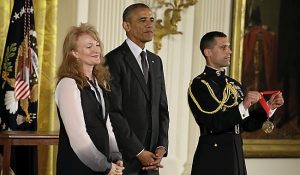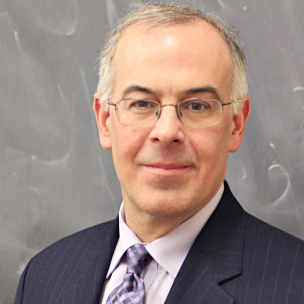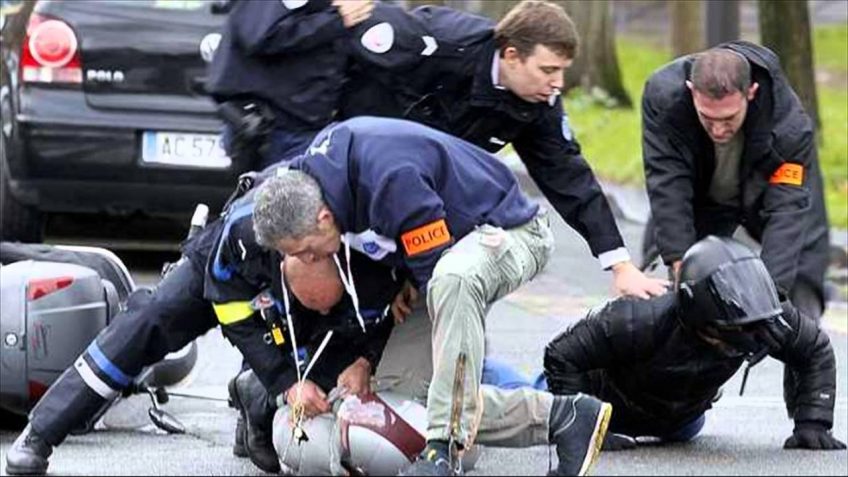I will be offering a four-week class at Casa Bagus on Clayton Road on the four Wednesdays in April. For more about it and to sign up, follow this link.


I will be offering a four-week class at Casa Bagus on Clayton Road on the four Wednesdays in April. For more about it and to sign up, follow this link.

In these days I often remind myself that, as Martin Luther King Jr. told us, “The arc of the universe is long, but it bends toward justice.” While I fervently believe this is true, at times like these I need a bit of reassurance.
That reassurance came earlier this week when I was emailed a link to a new eBook by Ken Wilber entitled, Trump and a Post-Truth World: An Evolutionary Self-Correction. You should know Ken Wilber if you don’t. Some find him a bit hard to take as he sometimes comes off as though he thinks he is the smartest guy in the room. I suspect this may because he is the smartest guy in the room.
While much of what we think of as scholarship drills down into the details of what is, Wilber, as an integral philosopher, is always using the details to construct the largest possible picture of what is. In this 80 page freely distributed book [It’s a pdf. You don’t even need a special reader.] he draws deeply from aspects of integral philosophy to explain what is happening in our world politically and to offer a perspective on what we can do to heal it.
It helps a lot to have a background in AQAL theory and Spiral Dynamics. You can find lots of resources online to explain these terms more fully than he does in the book. But ultimately you will be able to follow his thread if you stay with it.
The bottom line is that while the current crisis is the horrific disaster we think it is, it is also a necessary and ultimately healthy corrective in the progress of evolution to greater health and wholeness for humans and the planet. Or at least it can be. But it will be only to the degree to which we don’t let our fears cause us to regress and follow the paths of hate and division. We will, as one of the earliest authors of nonviolence taught us, have to learn to love our “enemies.”
Read it yourself and then let’s talk about it.
[button link=”http://integral-life-home.s3.amazonaws.com/Trump%20and%20a%20Post-Truth%20World.pdf?mc_cid=7bc27b87f1&mc_eid=8b762109e6″]Trump and a Post-Truth World[/button]
 We didn’t elect Donald Trump as our President because we thought he would fix things. We elected him because we knew he would break things. At some point that task will be completed and we will have to start rebuilding. We will have to remove him.
We didn’t elect Donald Trump as our President because we thought he would fix things. We elected him because we knew he would break things. At some point that task will be completed and we will have to start rebuilding. We will have to remove him.
It may take four years when we elect someone else. It may only take until the 2018 elections when we have reconstituted the Congress such that we can impeach him. Or it may come to the awareness of the Republican Party that they cannot allow him to remain in office without doing fatal damage to the party. Indeed, they may have no hope for re-establishing credibility with the American people unless they are willing to protect us from him.
§
Each person has the option of choosing to feel better or to better feel. The more mature option is to allow our pain to teach us about what we need and to motivate us to improve our lives. We use the anxiety to bring our attention to an issue and to explore it until we understand how to address it and then fix it and get pleasure from a sense of mastery and the absence of the pain we were in.
But from time to time we are so overwhelmed by the anxiety and have so little hope that we can address it that we say, “screw it,” and just grab a beer or a donut or some porn. Instead of struggling to “better feel” we just do what will make us “feel better.”
That is what we did when we elected Donald Trump. Coal miners in West Virginia didn’t think that Trump would bring back their jobs, but they liked the fact that he was expressing outrage over the loss of them. They just wanted someone to “drain the swamp.” By now it is very clear that he has no intention of draining the swamp. Rather he is importing the alligators.
But these alligators will break the system. They will quickly and effectively make the system so dramatically dysfunctional that we will have to scrap it and start over. It will be beyond repair. At that point we will, as the person who has “acted out,” discover that we have “hit bottom,” in the parlance of addition recovery. We will marshal our resources to the point that we no longer take the easy out and instead do the hard work of rebuilding.
The tasks of rebuilding are not going to be possible in the presence of a corrupt system. By no objective definition of corruption can one argue that Hillary Clinton is more corrupt than Donald Trump. That is going to be even more apparent as soon as he is sworn in [in five days as I write this].
Corruption is when one uses the power one is entrusted with for the benefit of another to benefit oneself instead. Accepting bribes is a prime example. But so is when elected officials use the power of their office in ways that benefit the party over the interests of the people. So, yes, we have a corrupt federal government.
The promise of a Trump Presidency is that it will make the corruption so evident that we cannot ignore it any longer and will finally act to change the system. We will begin to demand that our political parties actually serve the people over their own petty interests. We will actually drain the swamp.
I am quite confident this will happen at some point. We cannot continue to damage our internal organs with our dependency on intoxicants like promises we know cannot be kept and which are ultimately unjust. At some point we will grow up and realize that we each have a responsibility to the all that requires that we pay taxes and care for each other and no longer expect the community to do more for us than we are willing to do for it. That day will come and it will come sooner for the folly that is our election of Donald Trump.
 In these days, the ways that people living side by side make meaning can be vastly different. We can find the facts we want (or, failing in that, simply create the facts that suit us) and construct the meaning or our choice.
In these days, the ways that people living side by side make meaning can be vastly different. We can find the facts we want (or, failing in that, simply create the facts that suit us) and construct the meaning or our choice.
Not all meaning is of equal value. The best meaning is that which most closely approximates reality. Ultimately we cannot know what is real. We can only approach it. It is an asymptote; a limit we can move towards but never fully grasp.
When the meaning we make, the cognitive maps we craft, are close renderings of reality, we can make choices which best construct what we need; that is, the conditions which keep us safe and allow us to be satisfied.
Choices which attempt to meet our needs but ignore the needs of others are based on faulty maps. They don’t acknowledge the unity of all things. They are a short-term fix that causes long-term problems.
As we approach the inevitable conflicts of life, especially those with whom we have the most intimacy, we benefit greatly by having a cognitive map that acknowledges the interconnectedness of all and thus supports our ability to create what we need such that others get what they need as well.
The Workshop on Interpersonal Nonviolence is an introduction to just such a map.
 For the first time in my memory I experienced Christmas without a home church. I went to the Christmas Eve Service at Pilgrim UCC where I am still technically a member and am known and welcomed but where I don’t have any leadership role. I helped Leroy light the many candles and then he recruited me to help as an usher and I did my part to try to hold up the words of the hymns in the face of that mighty organ, but I am a visitor, not a pastor.
For the first time in my memory I experienced Christmas without a home church. I went to the Christmas Eve Service at Pilgrim UCC where I am still technically a member and am known and welcomed but where I don’t have any leadership role. I helped Leroy light the many candles and then he recruited me to help as an usher and I did my part to try to hold up the words of the hymns in the face of that mighty organ, but I am a visitor, not a pastor.
So I am experiencing Christmas in a different way this year. I am less a participant and more an observer.
I have seen a couple of articles which question what it means that, “there was no room in the inn.” But practically speaking this seems to have more to do with the crèche scene than the theology of the nativity. Indeed, the theology of the nativity seems to have very little to do with Christmas as we celebrate it.
Which is quite okay with me. We have created the holiday we need in the face of the stories Matthew and Luke have given us. And it is a great holiday. It is about family and giving and love for all and acceptance. It is full of colors and light and smells and music. It is about exuberance and excess.
But all of this manages to pretty much miss what the gospel writers were trying to say. So while we think we are remembering Christmas, we are obliterating the fundamental messages. What they told us was that the life of this human person Jesus was a revelation about the nature of the divine and of who God is and how God enters into life… into our life. It is a stark contrast to the cultural values not only of ancient Israel but of modern America. It is not about something amazing that happened long ago to someone else. It is about what is happening right now… and now… to me and to you and to us.
One thing we have got right. It is about abundance; an abundance of love.

President Barack Obama awards the 2013 National National Humanities Medal to Krista Tippett, radio host, from St. Paul, Minn., during a ceremony in the East Room at the White House in Washington, Monday, July 28, 2014. (AP Photo/Jacquelyn Martin)
Today’s On Being with Krista Tippett is an interview with a couple of American Buddhists on how we relate to our enemies and our suffering. It is a part of the work that she and On Being are doing on nurturing Civil Conversations. When we operate out of a cognitive map that defines people as either allies or enemies, and which legitimizes not only the emotion of anger but its expression in violence, we construct suffering — and not just for others but for ourselves as well.
What is the alternative? Jesus taught us to love our enemies, but as Sharon Salzberg and Robert Thurman point out in the piece, that way of being requires development. We evolve into a way of being that replaces hate and fear and anger with concern and care and love. We have to first of all stop the hate before we can start the love. It takes more than intention to make this shift; we also need discipline.
This is just the approach that we will be taking in the conversation on January 14 that I am calling Interpersonal Nonviolence. We are not only stopping the violence, we are also embodying the love that arises when we can more and more fully experience the fact that we are all connected…that we are all a part of the same body. For more information about that workshop, follow this link.

What if falling in love is not something that happens to you, but something that you create by the choices you make?
Link to source: To Fall in Love With Anyone, Do This (Updated With Podcast) – The New York Times
Do we really want to have a greater level of intimacy with others? Why does intimacy scare us so much? What would happen if we were in a community in which the norm was to have the deepest level of intimacy with each other that we could?

Comment by David Brooks in a conversation with E. J. Dionne and Krista Tippet for On Being held at Graham Chapel at Washington University sponsored by the Danforth Center on Religion and Politics posted October 20, 2016
In D.C., I have two friends named Kathy and David, and they had a kid who went to a public school, and that kid had a friend who had no real home. His dad had split, mom had drug and health problems. So they said to the kid, “Come over. Stay with us. You can live with us. Eat if you need. Go to school.” And then that kid had a friend in the same circumstance, and that kid had a friend.
If you go to them — their house — and I do every Thursday and hopefully on Mondays — there’s 10, 15, 25 kids there 18 to 22 just getting some food. Last week, a young woman came and said she was 21. This was the first time she’d been around a dinner table since she was 11. And I took my daughter once, and she said, “This is the warmest home I’ve ever been in.” They call Kathy and David Mom and Dad, and there’s just a warmth and embrace.
What we give them — we, as adults, give them the gift of being their audience. So there’s a kid named Ed who would read from his flip phone poetry he’d written. There’s a woman named Kasari who would sing like a New Orleans jazz singer. And you just receive them, and they define themselves in front of you.
And what they gave to us was a complete intolerance for social distance. So when I meet most of you, I shake hands, and there’s a little distance there because we don’t really know each other. But the first time I walked into their house, I reached my hand out to one of the kids, and he said, “We don’t shake hands here. We hug.” And so — big hugs and you’re just physically draped around each other.
We were in a forum, and I quoted this guy, Bill Milliken, who happened to be in the audience last time Krista and I were together, and he’s been working on youth issues for 50 years. And he said, “I’m often asked in 50 years of doing this, what programs work to turn around lives?” And he said, “I’ve done this 50 years. I’ve never seen a program turn around a life. I see relationships turn around lives, and I see love turn around lives.”

As events occur to us they cause emotion. The quality of the emotions that arise for us is a product of the event that evokes them. We get to choose whether we feel but not what we feel. The feelings will dissipate once they are fully felt.
We do best when we fully feel all our feelings as they arise. If we don’t fully feel the emotions they may pass out of our awareness for the moment but they linger, often associating with similar feelings.
Sometimes the feelings are too intense in the moment and they get in the way of things we need to do. So we disassociate from them. We will have to go back later and attend to them or they will take up residence as unresolved trauma.
Whenever we have an experience that resonates at the same or a similar emotional frequency, those old feelings will come back up. But at this point we will need to do more than just endure them. For healing to happen we need to acknowledge and embrace those old unfelt feelings. If we don’t, they just keep coming up again and again looking for someone to fully witness and validate them.
If, when those feelings come up for us, they are met with rejection, denial, and fear; they are not getting acceptance so healing doesn’t happen. When they are acknowledged, welcomed, and embraced, their energy dissipates and we are at peace.

[Cover story on the PD on Monday 5-2-2016 about the prosecution of “failure to comply”]
Most of us know that we can’t control other people’s choices. This knowledge doesn’t stop us from trying, of course, but we aren’t really surprised when we tell someone to do something and they don’t. Even when this someone is our child the fact that we have given a command doesn’t mean we will get compliance. As often as not, the order will be met with the query, “Why?”
In the larger social order we want there to be a force that will control errant behavior. We create a certain class of powers that are supported by law and appoint persons to have these police powers. We train them and we require them to take an oath to properly uphold the law. We feel safer because of the presence of those who are pledged to protect and to serve.
But from time to time someone with the badge may order us to behave in a particular way that doesn’t seem to be consistent with safety and public welfare. The command may not be within what we understand to be the law and may even be experienced as an abridgment of our rights. We resist.
While this resistance is understandable, it is also a response that weakens the authority of the law. It becomes an occasion for the decay of social order. It demands our attention. Is this an overreach on the part of the police or a rebellion on the part of the populace? We must be very clear about this. Both the police and the populace have rules they have to follow. And when the populace comes to believe that the police are not obeying the rules, rebellion is the result.
The populace is by nature unruly. The police are by design disciplined. It thus falls to the police to police its own. When we have cops who go beyond their appointed powers they undermine the authority of all police officers.
Rev. Dr. Mark Lee Robinson
Monday, May 02, 2016